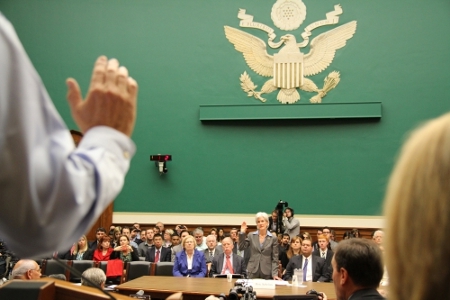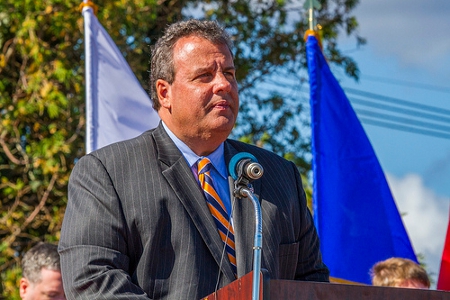Chris Gilson looks at the best in political blogging from the Beltway and across the States.
Affordable Care and Healthcare.gov difficulties
The big story for much of the past week has been the on-going difficulties with the Obama administration’s website designed to help people sign up for healthcare insurance as part of the Affordable Care Act. On Saturday, Paul Krugman looks at why Obamacare is so complicated, saying that the system is essentially trying to simulate the results of a single-payer system, but must do so whilst keeping private companies in the mix. On Sunday, Doug Ross lists 25 of the best quotes explaining the Obamacare website’s ‘glitches’ from across the media and politicians. Crooks & Liars says that media are doing what they do best – making people panic with scare stories about Obamacare.

This week many commentators tried to find someone to blame for the website’s problems. National Journal lists five people that Obama could fire. The Political Carnival also wonders who should be fired, although they focus on only two, Health and Human Services Secretary Kathleen Sebelius for her oversight of the program, and House Speaker John Boehner, for similarly failing the U.S. government during the recent shutdown. Finally, Daily Kos argues that firing Sebelius would fix nothing and could make things worse, as Republicans would block any potential replacement for her.
Looking at Obamacare more widely, Hit & Run argues that while Obamacare’s state exchanges have been relatively successful, this is actually due to an increase in enrollments for Medicaid, not health insurance. Crooks & Liars covers Ohio Governor John Kasich’s expansion of Medicare and Medicaid in his state, while at the same time denouncing Obamacare. Meanwhile, United Liberty argues that a one year delay to Obamacare’s individual mandate wouldn’t cripple the program, as the tax penalty for the failure to comply does not begin to ramp up until 2015, and insurance companies will still have access to the Transitional Reinsurance Program which compensates them to the tune of billions for the ban on pre-existing conditions. On Tuesday, Wonkblog looks at claims that Obamacare is cancelling some people’s health insurance plans. They write that around 7 to 12 million people will not be able to renew their current coverage, as it does not meet the minimum requirements under the Affordable Care Act.
The American Prospect looks at the complicated contracting arrangements behind the Healthcare.gov problems, saying that given previous IT contract failures, the government should have had the foresight to realise that the ordinary procurement process would likely doom the project. Meanwhile, Outside the Beltway writes that the Obama administration was aware of the Obamacare website’s problems months before it was launched. On Thursday, National Journal covers Kathleen Sebelius’ testimony to the House Energy and Commerce Committee on the Healthcare.gov website, where she acknowledged the site’s flaws and accepted accountability for the website’s failings. On Friday, Red State says that the criticisms of Obamacare are not about the website, or the individual mandate –the real concern for the right is that the program is actually designed to destroy the private insurance market, making a large part of the middle class dependent on government subsidised healthcare.
Government and the Beltway
Looking ahead to the 2014 mid-term Congressional elections, Red State says that Democrats who are predicting retaking the House are ignoring the effects that the troubled Obamacare website may have on their electoral chances.
The New Yorker looks at the rise of the Tea Party, which has meant a shift to the right for formerly moderate Republicans, such as Senate Minority Leader Mitch McConnell. Meanwhile, The American Prospect argues that, being an oppositional movement at its core, the last thing the Tea Party wants is to win elections. On Tuesday, Outside the Beltway says that considering the acute level of political polarization of the two parties, the political center is now dead on Capitol Hill. The Atlantic also discusses Republicans, reporting on a new poll that says that only 23 percent want more women to be elected to Congress, compared with 60 percent of Democrats.
This week sees record low approval ratings for President Obama. Outside the Beltway writes that 51 percent of Americans disapprove of his job performance, saying that these figures show just how fed up people are of their government. The Atlantic looks at why Obama might be ready to fold in the upcoming budget talks, saying that he is willing to make cuts to Social Security and Medicare seemingly just to show how reasonable he is.
Foreign policy

On the weekend, new revelations come to light that the U.S. National Security Agency (NSA) may have bugged German Chancellor Angela Merkel’s cellphone since 2002. American Thinker says that this is hugely embarrassing for the Obama administration, not so much for the act of spying, but that they have been caught doing it. Meanwhile, The Lonely Conservative wonders how much Obama knew about the surveillance. Crooks & Liars covers recent comments by Republican Congressman, Peter King, who has argued that neither Obama nor the U.S. should apologize for spying, and that the intelligence gathered is valuable, and also helps European interests. Hit & Run takes the opposite line, writing that the director of national intelligence James Clapper and NSA head Keith Alexander should both be fired to restore the credibility of U.S. intelligence agencies. Meanwhile The Atlantic looks at the conflicting narratives between the Obama administration and the intelligence community over these latest revelations around surveillance.
On Sunday, Via Meadia looks at the White House’s new potential ‘Grand Strategy’ in the Middle East, which revolves around reaching a nuclear deal with Iran, making peace between Israelis and Palestinians, and mitigating the Syrian conflict.
The economy and society
Friday this week sees the planned drop in food stamp benefits come into effect, something that should have been far less abrupt, according to Daily Kos, given Democrats’ plans to prevent the decrease in funding until they lost the House. Meanwhile, Red State looks at the farm bill that Congress may be about to pass, arguing that it should be rejected in its present form, given that it helps to distort the agricultural sector for the benefit of the powerful.
The Monkey Cage profiles new research that looks at the racial attitudes of people who came of age in the Obama years, finding that this generation is more favorable towards blacks than their predecessors.
Turning to the state of the economy, Via Meadia argues that with static revenues, and growing liabilities, America’s cities are on life support. Meanwhile, The Atlantic looks at the massive drop in infrastructure spending in the U.S. since 2002, which is made worse by the well-known benefits to GDP investment in this area can bring.
On Thursday, Wonkblog looks at the U.S. Federal Reserve’s recent statements that there has been a tightening of financial conditions in recent months, and a slow-down in the recovery of the housing sector. They argue that these statements are mostly a result of the Fed’s own signals in the spring and summer that they may begin to taper their own policy of quantitative easing.
Via Meadia looks at the flattening of college admission prices, especially for those on lower incomes, and argues this may not be a good thing if others now have to pay more.
The American Prospect examines why police shootings of innocents are on their rise. They say that one potential explanation is that squeezed police budgets are leading to less firearms training for officers.
Across the States
Northeast
Next week sees New Yorkers go to the polls to elect a new mayor to replace the outgoing Michael Bloomberg. Caffeinated Politics says that Democratic candidate; Bill de Blasio is headed for a ‘barn-burner’ of an election, with a 45-point lead over his rival, Joseph Lhota. Still in New York, The Atlantic covers a new city council law that raises the legal age for purchasing cigarettes to 21. The Lonely Conservative says that one year after Superstorm Sandy devastated parts of New York and New Jersey, only 11 percent of the assistance funds have been paid out.

The state of New Jersey is also heading for a similar landslide (re)election to that of New York, where Republican candidate Chris Christie is leading Barbara Buono by 33 percentage points, according to Outside the Beltway.
Green Mountain Daily writes that a high tech firm has left Vermont because the state is just too nice – meaning higher real estate prices, which lead to greater property tax liabilities for the company.
In New Hampshire, Miscellany Blue looks at gun control measures scheduled for consideration in the 2014 legislative session, two of which have bipartisan support. Staying in New Hampshire, Granite Grok looks at the problem of voter fraud –people voting from out of state – saying that the state should pursue these non-domiciled voters.
South
Next week also sees elections in Virginia. Daily Kos says that the Republican Party has collapsed in the state with Democratic candidates ahead in the races for Governor, Lieutenant Governor, and Attorney General. Democratic success could be something to do with the massive donations that unions have poured into the Governor’s race, reported on by Red State. They say that the Democratic candidate terry McAuliffe has collected $8 million more than his rival, Ken Cuccinelli.
The neighbouring state of West Virginia has come on hard times since the collapse of its coal industry. National Journal looks at the potential for a second chance for the state, with the rise of national gas exploitation and fracking.
In Alabama’s 6th Congressional District, incumbent Congressman Spencer Bachus will not seek re-election in 2014. According to Roll Call this has led to a ‘Republican stampede’ for the open House seat, with three now in the running to replace Bachus in the safe Republican seat.
This week, the Supreme Court declared a Texas law restricting abortions to be unconstitutional, reports The American Prospect, who also says that despite this victory, the incremental attack on abortion rights remains. Still in Texas, Burnt Orange Report writes that eleven state senators have called for the preservation of legislation that would offer in-state tuition to students, regardless of their immigration status, writing that it is better for Texas’ economy when all its residents are encouraged to participate.
Oklahoma’s Okie Funk looks at the state’s high rate of female incarceration, saying that though the problem is down to basic discrimination, there is little appetite in the state’s Republican dominated legislature to change the status quo.
Midwest
Caffeinated Politics reports that a majority of people in Wisconsin now support gay marriage, something that they say is big news given the efforts of campaigners and the state’s previously conservative measures. Still in Wisconsin, Political Heat writes that new polling shows that Governor Scott Walker may be vulnerable to his likely Democratic challenger, Mary Burke, come the 2014 election.
Reporting on Chicago, Capitol Fax says that while it has a reputation as a ‘murder city’, Chicago’s ‘murder problem’ is in fact highly localized to specific neighborhoods.
West and Pacific
Via Meadia reports that Oregon is thinking about replacing its current gas tax with a vehicle miles tax, that would reflect the true costs of driving.
In Idaho, Eye on Boise looks at the growing issue of Idaho’s felony offenders where a third of those released on probation find themselves back in prison within three years. The solution may involve improved offender supervision programs.
Crooks & Liars reports that in Nevada, an assemblyman has recently stated that he would vote for the reinstatement of slavery if his constituents wanted him to do so.
The Atlantic covers the campaign of Liz Cheney, daughter of the former Vice-President to win a Wyoming senate seat in 2014. They say that her father, Dick Cheney, has waded into the campaign by slamming the current Senator Mike Enzi for taking out of state donations.
In California, Via Meadia reports that the city of Fresno is now essentially held together with ‘duct tape’ given its $14 million deficit that has forced it to lay off employees and slash services. Meanwhile, Calbuzz reports that some in the state’s northern Siskiyou County are talking about secession from the rest of California, out of dislike for Sacramento’s liberal policies.
National Journal examines the state of politics in Colorado, writing that while the Democratic Party has seized on the state’s changing demographics, this has now caused a Republican backlash. Still in Colorado, The Spot says that some of the state’s conservative leaders will be lobbying the GOP in Washington DC to support immigration reform.
In Hawaii, Honolulu Civil Beat reports that after the state’s senate passed a Same-Sex Marriage Bill, it is now up to the lower House to consider the bill.
And finally…
Outside the Beltway reports on the latest sport to be hit by a doping scandal – pigeon racing.
Seventy-five years after it was first broadcast, The American Prospect looks at the ‘myth’ of mass panic from Orson Welles’ radio dramatization of the War of the Worlds.
SaintPetersBlog says that a Florida blog has reported that John Patrick Julien may be eyeing another bid for State House District 107. Julien has been dead since September.
Please read our comments policy before commenting.
Note: This article gives the views of the author, and not the position of USApp– American Politics and Policy, nor of the London School of Economics.
Shortened URL for this post: http://bit.ly/Ht3SEE







Thanks for sharing! I must say the healthcare system has improved since then with the Obama-care program.